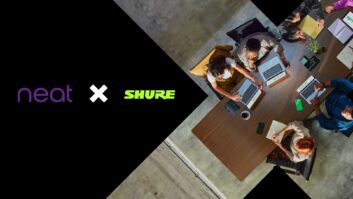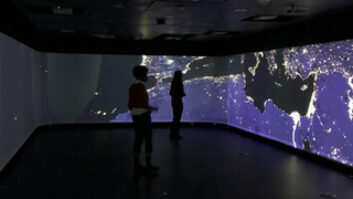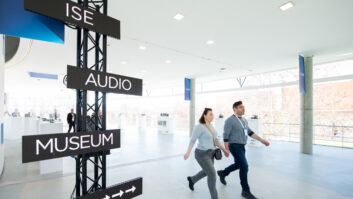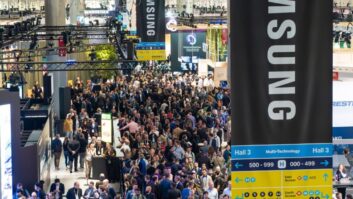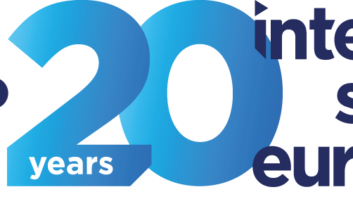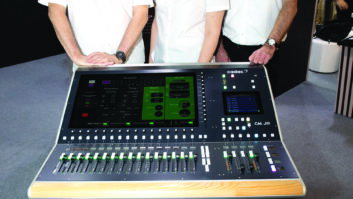Headquartered in Sint-Niklaas, Belgium, Niko Group is a third-generation family-owned company, founded in 1919. Today, the company enjoys a more than 80% share of its domestic market in electrical switches and sockets. Through organic growth and acquisition, the group consists of eight companies, organised into three business lines: these cover products and solutions; projects; and services.
Niko (the company) has a growing reputation in the areas of lighting control and home automation. On a recent visit to its headquarters, Paddy Baker spoke to CEO Peter Watteeuw about the company’s performance to date, and its plans for the future within Europe
Q: How did you come to your present role?
A: What we call Business Line 1 within Niko Group basically consists of three companies: by far the largest is Niko, the second is EREA, which is active in making transformers and also in the LED business, and the third is Intensia, which developed a high-end home automation system, and is a company we acquired eight or 10 years ago.
I’d been managing EREA for the past four years. Last year, because of the reorganisation and the new strategy for the group, [chairman and owner] Jo De Backer, who was previously managing Niko, decided to manage the Niko Group and asked me to manage Niko.
Q: How does Niko approach the European market?
A: What’s important to know is – the company has existed for 90 years, and throughout that period, Niko has remained in Belgium the only producer on an industrial level of switches, sockets and related products. So we are by far the market leader – we have a very dominant position in the local market.
Outside Belgium, we have the challenge of being a small player and we have to work with a very different market approach. That became very apparent in the strategy exercise that we undertook last year.
In Belgium we want to maintain our market position – we want to pick up some additional market share, move up from standard product to more luxury versions, and get more into home automation. We decided that outside Belgium there is one additional market that we could approach as a second home market, and that is the Netherlands. This is because for cultural reasons, and also the market situation; there isn’t one dominant player as there is, say, in France. The country is much bigger than Belgium, but it’s still affordable for us to be present, visit all the wholesalers and hold stock with them.
Apart from that, we are focusing our activities in UK, France and Slovakia, with a completely different approach. There we have decided that the countries are not well known enough to us, and we don’t have the size as a company to be strongly present there. So we decided to have a more focused approach in niche activities; and as a cornerstone of those activities, we decided that should be home automation.
So in Belgium and Holland we are very active in approaching the wholesalers – we are present in the majority of them. In other markets, when you focus on those niche markets, your business is generated partly by installers, project developers and influencers – architects and engineering bureaux. With a project orientation, that will allow us not a big market share, but big enough and important enough for the size of company that we are.
Q: And how has Niko fared this year, with the economic situation as it is?
A: There are two completely different stories in answer to that: the Belgian situation and the situation abroad. In Belgium we’ve handled the recession very well. The market overall went down between 8% and 10%, but we hope to finish the year maybe 1 or 2% down – so we’ve taken market share. We were expecting a considerable drop in sales at the end of the summertime, because it’s at the end of the construction cycle. We went down in activity, but not drastically. To our surprise September was good, and October was very strong, but I have no visible reason to say this is because of any particular change in the economic or political situation.
The situation abroad is much more difficult. In Holland we had aggressive growth plans, but these have not resulted in dramatic growth – mainly because the market went down 20-22%. We went down a fraction of that, but we had been anticipating considerable growth of maybe 20- 25%. So we adjusted our approach there, we learned from mistakes that we made. Next year will be better, but we’re not accomplishing what we had in mind.
In the UK, France and Slovakia, those markets are obviously suffering from the crisis and, because there we are very much project-oriented, activity has been lower, as many projects have been postponed. But as Belgium takes care of 85-90% of our turnover, that has the strongest impact.
Q: Some people might be surprised to hear that you’ve chosen Slovakia. What are the reasons for targeting that country?
A: We set up an office in Slovakia in the second half of the 1990s. This was solicited by the owners of a company in Slovakia to distribute the Niko system – they were happy with the differences with the more well-known automation systems, and we’ve always done good, steady business there. During the strategy exercise, we decided that Slovakia is not a strategic market for us, but could become strategic as a hub for the eastern European market. So far this has not really been developed because of the economic crisis in those countries, but we’re developing plans to do this in the years to come.
Q: How does Niko compete with other home automation providers? What is your USP?
A: I think the Nikobus system is a perfect example of the whole philosophy of Niko. Niko differentiates itself from other companies by being easy to install and easy to use. We know that by making life easier for installers we’ll have good customers and good customer bonding.
I think our unique advantage is that it’s a very simple system, it’s a modular system so you can build up functionalities. It’s very easy to install, very easy to program – I think it’s about the only system that can be programmed with a screwdriver – you don’t need a computer to set it up, and a lot of installers like that, and it’s easy to use. It’s not the most sophisticated system, or the most luxurious system in terms of finish – there’s much more in the high end of the market. But it can manage this building [Niko headquarters – offices and factory] as well as private homes. There is plenty of functionality that caters for an integrated home automation system – lighting, heating, ventilation, energy management, audio and so on.
Q: You mention energy management – on the domestic side is there much demand for that at the moment, or do you see that growing in the coming years?
A: The main challenges we’ll all be facing for the coming years are the ageing society, energy efficiency and eco-awareness. As a company we’ve been very eco-aware, and I think that started in the late 1990s or early 2000s when we signed a charter for being an eco-friendly company, and we’ve won several awards over the years for our efficient use of raw materials, water treatment and energy management. The lighting in our headquarters is managed by sensors: not only movement detectors, but also measuring the daylight that is coming in and compensating for the lack of daylight on one side; as you can see, not all the lights are on in this room at the moment. In this building, we’ve been able to save 50-60% on lighting compared with if we had installed conventional light bulbs and lighting control.
Q: Does that translate down to an easy sell at the domestic level – are consumers interested in energy management?
A: One of the particularities that we are facing is that in residential markets, people are not used to thinking in terms of total cost of ownership, unlike in business and industry. The second thing is that when a private individual living at home invests in a device – such as an intelligent switch – he’s expecting a payback period that is much shorter than what we know in the industry. It is difficult to prove, on the money side, the big advantage of energy efficient systems in a house, because most lighting is only a fraction of the total energy management. So in terms of awareness in the residential market, there’s still a lot to be done – and to answer the question, I don’t think the residential market is ready yet for a big expansion into that domain.
But we have solutions catering to the offices market, to the industry. We have plug-on devices that do energy monitoring and control, and we’re developing a system with built-in intelligence that lets you program, through the home automation system, which devices should work when, so that you can have optimal use of your energy.
Q: When was the new strategy finalised, and how has it affected things going ahead?
A: It was literally finalised a couple of weeks before the big financial crash of last year – talk about good timing! We had felt the need for it over the past few years – because alongside the autonomous growth of Niko and EREA, some other companies had been acquired, mainly in Jo De Backer’s division. For him it was very important to try to combine the electromechanical world with the ICT world. So to gain experience and knowledge in that other field, Niko Group invested in some start-ups and took over some smaller new companies. The ultimate goal is to combine these two activities and have a better view on how we can give much more important and added value.
For that reason, about a year ago we hired a consultant to look at those eight companies and see how we can make one story of those companies: and define which market segments we should cater for, and how we should approach the market. Because of the differences we noticed, we split it up into three business units.
What we have experienced over the past year with the new strategy is that, firstly, it brought a lot of clarity to the company – it’s much more clear what the future can be. Those are things that we learned from the ICT world, from web-enabled services: in our next generation of home automation system we will connect with the services platform that is developed in our third business line and bring some unique features to the market. Also, we’ve seen that the different business lines are actively interacting, and passing leads, and we are evolving from eight different companies to one company with one common goal.
That’s the positive news. One negative that I should mention is that in that strategy we had some ambitious targets for the years to come, but because of the economic situation we haven’t been able to meet them. But that’s only a short-term remark.
In total, Niko Group is over 800 people, and we have a turnover of around 120 million euro. We have about 130 million euro equity, our own capital, so it’s a very sound company for its size. Business Line 1 employs just over 700 people – and we realise close to 110 million euro, so you see a dominant position from Business Line 1. But we believe and we hope that in 10-15 years from now, Business Line 3 with its web-enabled services could very well be the fastest-growing business, and in terms of turnover the new dominant part of the group.
Q: Finally, how do you see next year compared with this year?
A: Despite the evolution in sales figures that we’ve seen over the past one-and-a-half months, I remain pretty realistic and conservative in my projections. I don’t see any solid reason, with the situation globally, in Europe and certainly in Belgium, why we would see a drastic improvement in the whole environment.
For next year I’m targeting roughly the same results as this year, but I’m also putting a lot more focus on developing our business outside Belgium – mostly Holland, but also UK and Slovakia.
